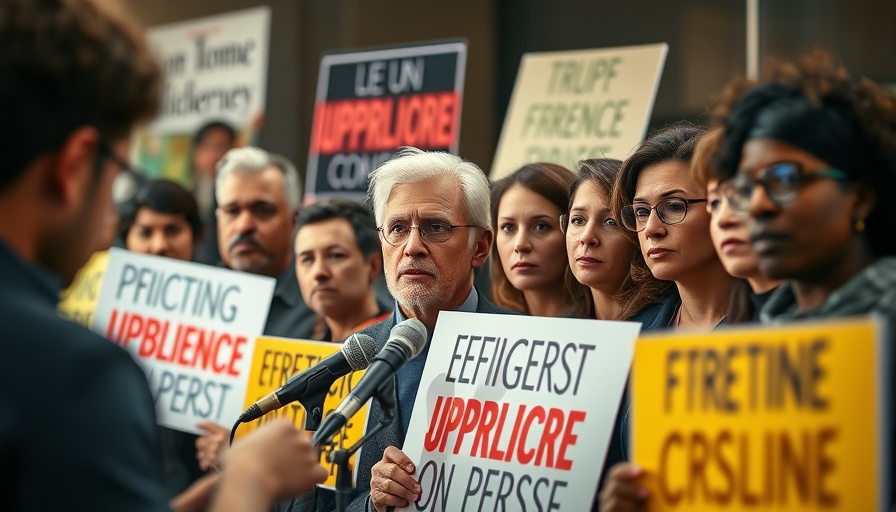
US Grapples with Mistaken Deportation Case: A Legal Quagmire
The case of Kilmar Abrego Garcia has shone a light on the complex and often opaque nature of U.S. deportation policies. After being mistakenly deported to El Salvador, Garcia’s situation has prompted legal scrutiny and strong public outcry. His wife, Jennifer Vasquez Sura, addressed the media recently, urging authorities to facilitate her husband's return home to Maryland. Despite a federal court ruling ordering the government to act, officials have remained tight-lipped about their plans, highlighting ongoing challenges in immigration enforcement.
Public Reaction and Its Implications
The silence from U.S. immigration authorities has ignited concern among immigrant advocacy groups and the general public, with many questioning how such a mistake could occur. Activists argue that cases like Garcia's destabilize families and reflect deeper issues within the immigration system that negatively affect countless individuals seeking stable lives in the U.S.
Moreover, silence from the government on this matter could foster distrust and animosity towards immigration policies, further complicating the relationship between officials and immigrant communities.
Legal Perspectives on Deportation Policies
This incident also paints a broader picture of the precarious nature of legal immigration status in America. A legal expert pointed out that the situation could serve as a pivotal case in reviewing how deportations are handled, particularly when errors occur. There is an ongoing demand for clarity and transparency regarding the processes that lead to mistakes, with advocates pushing for reforms that ensure individuals' rights are protected.
Looking Ahead: The Future of Immigration Enforcement
As discussions surrounding Garcia's case unfold, this could prompt a review of current immigration laws and procedures. The government might face increased pressure to communicate more effectively about such sensitive matters. Ensuring robust safeguards against wrongful deportations is vital for maintaining trust within communities affected by these legal frameworks.
In light of these events, understanding the intricacies of deportation laws has never been more critical. For those in the business and legal sectors, this serves as a case study highlighting how policy decisions impact real lives, influencing everything from corporate social responsibility to economic discussions surrounding immigration. Maintaining awareness of such trends is crucial for business professionals navigating a complex landscape.
 Add Row
Add Row  Add
Add 



Write A Comment